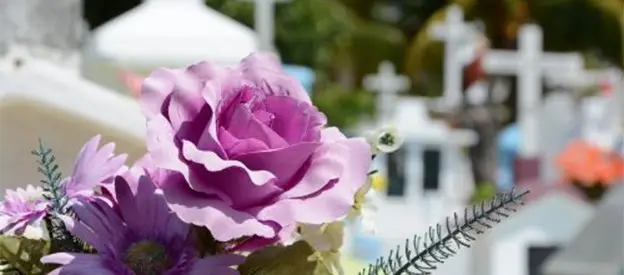The cost of dying continues to rise, placing more pressure on councils that have to pay for ‘paupers’ funerals’.
At the end of 2015, it was revealed that local authorities had shelled out £1.7 million across the previous four years to cover Public Health Funerals. These are carried out when someone dies alone or with relatives who are unable to fund the costs. Research suggests that the increase in overall spend can be attributed to the fact that people are living longer and therefore more people are dying alone.
Last week, The Irish World was contacted about a case concerning Timmy ‘Lofty’ Norris, an ex-serviceman from Clonmel, Co. Tipperary, who passed away in London without any family. A friend explained how he’d “hate to see him go into a pauper’s grave” but, ultimately, he was cremated as part of a Public Health Funeral.
A study carried out by BBC Local Radio showed that costs for Public Health Funerals had risen by 30 per cent, while the number of these services had jumped by 11 per cent.
While the largest number of Public Health Funerals were carried out in the North West of England, London has seen the cost of such funerals double over the past three years. There were almost 2,153 Public Health Funerals carried out in the capital – almost two a day – between 2013 and 2016, compared to just 1,000 across the three years prior. Analysis published in The Evening Standard showed that the average bill paid by councils to cover funeral costs now stood at £1,230. In 2013, this figure was just £673.
“These tragic figures speak for themselves. People, mostly elderly, are dying around us with no family or friends nearby to care for them,” the Local Government Association said.
A service has been set up by Finders International, where people can confirm whether they have any known next of kin. In cases where they don’t, councils can apply for a subsidy to cover Public Health Funeral costs while donations to ease the pressure on local authorities are welcome.
While the stigma surrounding ‘paupers’ funerals’ has declined over the years, the lack of permanent memorial can still be upsetting to some. However, Mark Woollard, from the National Society of Allied and Independent Funeral Directors, explained how this is the reality for a growing number of people.
“I think there’s been an increase in public health funerals because people don’t have as much disposable income, and also, people are living longer and alone,” he told the BBC. “A lot of it is due to third-party costs such as crematorium fees, cemetery fees, and the minster’s fees, [which] have gone up much more than the funeral directors’ costs.”
Source material: IrishWorld


